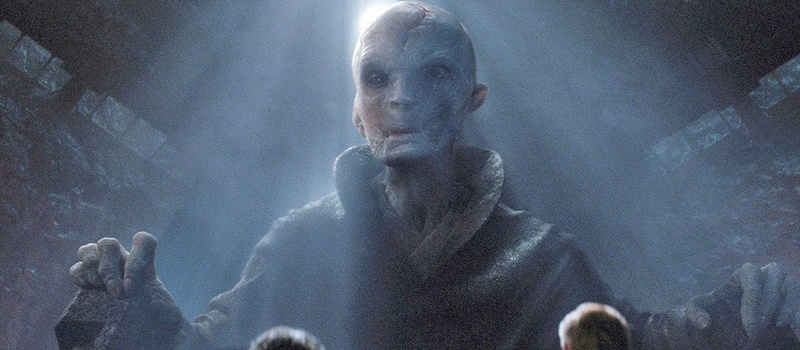CBS Stan Burke and Mark McClish Statement analysis vs power of the daubert side of the Forensics
The Unsolved Murder of JonBenet Ramsey :: The Unsolved Murder of JonBenet Ramsey-BLOGS :: Redpill's Blog
Page 1 of 1
 CBS Stan Burke and Mark McClish Statement analysis vs power of the daubert side of the Forensics
CBS Stan Burke and Mark McClish Statement analysis vs power of the daubert side of the Forensics
i'm writing this on Tuesday Oct 24, 2017
what i am about to say is something that anyone educated in the relevant forensic sciences should know.
CBS documentary featured a so-called expert in Statement analysis Stan Burke.
In the documentary Stan Burke along with fellow fraudster James Fitzgerald point out that the JonBenet Ramsey could have been written in 3-4 sentences.
We have your daughter. We want money. Will call you.
Since the actual ransom note is much longer than what it could be pared down to, it was therefore a sales job.
therefore,
Patsy wrote it.
And so-called expert Henry Lee nodded in approval

for anyone actually familiar with the scientific examination of questioned documents, this is simply appalling.
Similarly many RDI posters link to Mark McClish Statement analysis JonBenet Ramsey seemingly suggesting that it was written by a Ramsey.
If RDI posters were committed to ethics and professionalism, the question they should ask themselves is whether there is any scientific validity to Statement analysis
the criteria to evaluate experts is the Daubert standard, or what i call power of the daubert side of the Forensics
with that in mind a simple visit to wikipedia and skeptic dictionary on Statement analysis
therefore CBS Stan Burke and Mark McClish Statement analysis and James Fitzgerald fails to meet the Daubert standard, it is to be rejected as pseudoscience.
Their conclusion that Patsy or a Ramsey wrote the ransom note is rejected as expert witness testimony.
Any RDI appealing to Stan Burke and Mark McClish and James Fitzgerald as evidence Patsy or a Ramsey wrote the ransom note hasn't done the most basic research and simply visited wikipedia.
They are FOOLS.
Such is power of the daubert side of the Forensics
applying this consistently leads to one conclusion:
the scientific expert witness evidence is that JonBenet Ramsey was murdered by an intruder

Supreme leader is wise.
what i am about to say is something that anyone educated in the relevant forensic sciences should know.
CBS documentary featured a so-called expert in Statement analysis Stan Burke.
In the documentary Stan Burke along with fellow fraudster James Fitzgerald point out that the JonBenet Ramsey could have been written in 3-4 sentences.
We have your daughter. We want money. Will call you.
Since the actual ransom note is much longer than what it could be pared down to, it was therefore a sales job.
therefore,
Patsy wrote it.
And so-called expert Henry Lee nodded in approval
for anyone actually familiar with the scientific examination of questioned documents, this is simply appalling.
Similarly many RDI posters link to Mark McClish Statement analysis JonBenet Ramsey seemingly suggesting that it was written by a Ramsey.
If RDI posters were committed to ethics and professionalism, the question they should ask themselves is whether there is any scientific validity to Statement analysis
the criteria to evaluate experts is the Daubert standard, or what i call power of the daubert side of the Forensics
The Court defined "scientific methodology" as the process of formulating hypotheses and then conducting experiments to prove or falsify the hypothesis, and provided a set of illustrative factors (i.e., not a "test") in determining whether these criteria are met:
Whether the theory or technique employed by the expert is generally accepted in the scientific community;
Whether it has been subjected to peer review and publication;
Whether it can be and has been tested;
Whether the known or potential rate of error is acceptable; and
Whether the research was conducted independent of the particular litigation or dependent on an intention to provide the proposed testimony.[4]
with that in mind a simple visit to wikipedia and skeptic dictionary on Statement analysis
Statement analysis, also called investigative discourse analysis and scientific content analysis (SCAN), is a technique for analyzing the words people use to try to determine if what they said is accurate. Proponents claim this technique can be used to detect concealed information, missing information, and whether the information that person has provided is true or false.[1][2][3]
critics argue that it has not been subjected to objective analysis, with most of the studies failing to have used any outside criteria to confirm whether the statements were actually true or false. As it has not been proven experimentally and is generally unaccepted by courts, skeptics call it an example of pseudoscience.
Aldert Vrij, one of the leading authorities on detection of deception (DOD) techniques, points out that most studies of the technique did not rely on the ground truth being established and thus examiners could not be certain if "examinees were actually telling the truth or lying".[10] He also notes that there is no standardization among the different methods of analysis and this "implies that much depends on the subjective interpretation and skill of the individual" performing the analysis. Vrij attributes this to an absence of theoretical underpinning behind SCAN/statement analysis.[10] Vrij characterizes SCAN/statement analysis as weaker than CBCA because SCAN/statement analysis lacks "a set of cohesive criteria", being instead "a list of individual criteria".[10] Vrij argues that SCAN/statement analysis is best used as a technique to guide investigative interviews rather than as a "lie detection tool".[11]
Critics argue that the technique encourages investigators to prejudge a suspect as deceptive and affirm a presumption of guilt before the interrogation process has even begun. Statement analysis in general has been criticized as "theoretically vague" with little or no empirical evidence in its favor, and SCAN in particular has been characterized as "junk science"[1] with the Skeptic's Dictionary and Skeptical Inquirer magazine[12] classifying it as a form of pseudoscience.[2]
therefore CBS Stan Burke and Mark McClish Statement analysis and James Fitzgerald fails to meet the Daubert standard, it is to be rejected as pseudoscience.
Their conclusion that Patsy or a Ramsey wrote the ransom note is rejected as expert witness testimony.
Any RDI appealing to Stan Burke and Mark McClish and James Fitzgerald as evidence Patsy or a Ramsey wrote the ransom note hasn't done the most basic research and simply visited wikipedia.
They are FOOLS.
Such is power of the daubert side of the Forensics
applying this consistently leads to one conclusion:
the scientific expert witness evidence is that JonBenet Ramsey was murdered by an intruder

Supreme leader is wise.
_________________
If you only knew the POWER of the Daubert side

redpill- Posts : 6216
Join date : 2012-12-08
 Similar topics
Similar topics» handwriting "experts" and the power of the daubert side of the Forensics
» RDI it's Patsy's handwriting claims vs power of the daubert side of the Forensics
» Richard Dusak & Edwin F. Alford, Jr and the power of the Daubert Side of the Forensics
» DNA in JonBenet Ramsey as evidence of an intruder and the power of the Daubert Side of the Forensics
» superdave after i confronted him with the Power of the Daubert side of the Forensics *warning graphic images*
» RDI it's Patsy's handwriting claims vs power of the daubert side of the Forensics
» Richard Dusak & Edwin F. Alford, Jr and the power of the Daubert Side of the Forensics
» DNA in JonBenet Ramsey as evidence of an intruder and the power of the Daubert Side of the Forensics
» superdave after i confronted him with the Power of the Daubert side of the Forensics *warning graphic images*
The Unsolved Murder of JonBenet Ramsey :: The Unsolved Murder of JonBenet Ramsey-BLOGS :: Redpill's Blog
Page 1 of 1
Permissions in this forum:
You cannot reply to topics in this forum